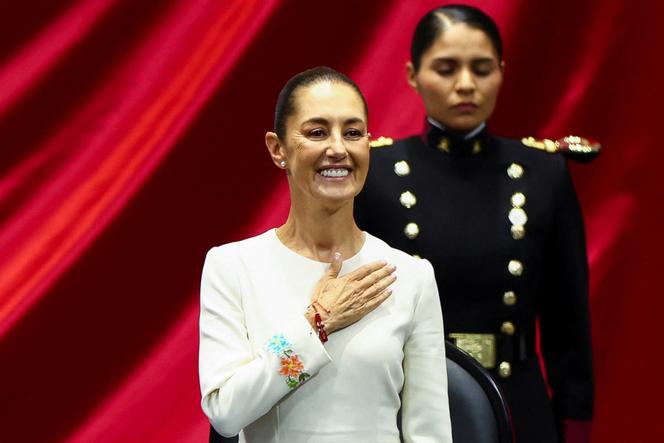


Claudia Sheinbaum was sworn in on Tuesday, October, 1 as Mexico's first woman president, inheriting a country beset by gang violence and economic uncertainty over controversial reforms passed by her powerful ruling party.
To cries of "Long live Claudia! Long live Mexico!" the 62-year-old former Mexico City mayor took the oath of office and received the presidential sash in Congress, with foreign dignitaries looking on, including US First Lady Jill Biden.
She will later attend a celebration in Mexico City's main square as leader of the world's most populous Spanish-speaking country, home to 129 million people, which has had 65 male presidents since independence. Supporters began gathering from dawn on inauguration day, which authorities declared a national holiday.
Sheinbaum on several occasions has said "it's time for women and transformation" in Mexico, a nation with a history of gender-based discrimination and violence, with around 10 women or girls murdered every day.
One high-profile absence was Spanish King Felipe VI, whom Sheinbaum refused to invite, accusing him of failing to acknowledge harm caused by colonization. In response, Spain announced it would boycott the inauguration, despite its strong economic and historic links with Mexico.
A scientist by training, Sheinbaum won a landslide victory in June elections with a vow to continue the left-wing reform agenda of outgoing leader Andres Manuel Lopez Obrador, a close ally.
Lopez Obrador leaves the presidential palace after six years due to the country's single-term limit, despite an approval rating of around 70%, largely thanks to his policies aimed at helping poorer Mexicans. He bequeaths Sheinbaum the leadership of a nation where murders and kidnappings occur daily and ultra-violent drug cartels control vast swaths of territory.
Spiraling criminal violence, much of it linked to drug trafficking and gangs, has seen more than 450,000 people murdered in Mexico since 2006. The new president will also have to deal with the fallout from a row over newly passed judicial reforms that will make Mexico the world's only country to elect all judges by popular vote.
Dozens of judicial workers demonstrated on Tuesday morning near Congress – the latest in several weeks of protests. Lopez Obrador argued the reforms were needed to clean up a "rotten" judiciary serving the interests of the political and economic elite.
The changes, which critics argued would make it easier for politicians and organized crime to influence the courts, upset foreign investors as well as key trade partners the United States and Canada. Even so, experts think Sheinbaum is likely to maintain good relations with whoever wins the US election on November 5 – particularly if it is Democrat Kamala Harris, who would also be her country's first woman president.
